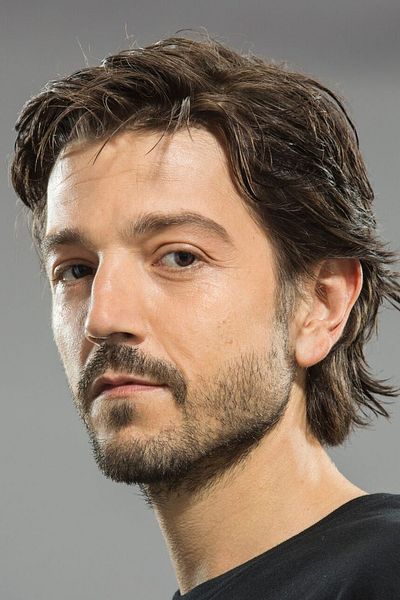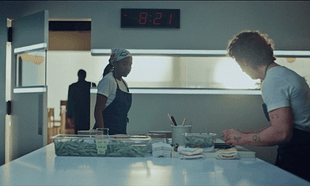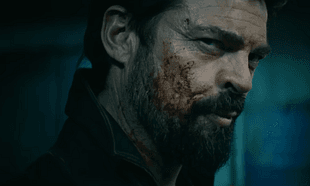People tend to forget that George Lucas stated numerous times that 'Star Wars' throughout its original trilogy was aping what he saw in '70s and '80s America. A vastly superior military force being outwitted and outmanoeuvred by smaller, more resilient, freedom fighters? That's the Vietnam War in a nutshell. All of the Imperial officers bore upper-class English accents, speaking to their long history of brutal colonialism. Even the more recent stuff, like 'The Force Awakens', speaks to how the second generation of fascism is always more extreme because it has the full weight and knowledge of what came before.
'Andor' opens with Cassian Andor trying to find his sister on a dingy, sleazy spaceport bar before he's hassled by two off-duty cops who want to shake him down for money. Pissed off and in no mood for any of it, the whole encounter takes a violent turn and Andor is on the run from law enforcement. Enter Syril Karn, played with breathtaking precision by Kyle Soller, a relentlessly dedicated law enforcement officer who also happens to be a hapless dipshit that can't take a hint. Karn gets it into his head that the death of these two off-duty cops is the fomenting of rebellion and, sure enough, rounds up a posse of equally hapless dipshits to run it down. There's a brilliant moment when the always reliable Alex Ferns, who plays a gammon-faced sergeant, talks about taking a zero-tolerance approach to policing, which ultimately ends up backfiring on them all spectacularly. Even in a galaxy far, far away, over-policing and trigger-happy law enforcement end badly for everyone.
Much of the action we saw in the first four episodes was grungy and grimy. There wasn't a single lightsaber to be seen, nor did anyone make a heroic charge over the hill to victory. It was all darkened side streets, grotty town squares, people fighting angrily and quickly, and trying desperately to survive in an environment where their lives aren't worth nearly as much as they should be. Looking at 'Star Wars' generally, there's a vast underworld that's come to the surface in the likes of 'The Mandalorian' and 'The Book of Boba Fett', but here with the absence of helmets and the presence of real sets and characters, it feels much more alive and consequential.
Diego Luna's character is vastly different to the one you'll have seen in 'Rogue One', as he's not the self-sacrificing, world-weary spy we saw there. Set five years before all that, he's out for himself, trying to save his own skin, and keeping ahead of his debtors by any means possible. Our own Denise Gough comes into the story as a rigid Imperial Security Bureau officer who's sent to clean up the mess made by Kyle Soller and Alex Ferns, while another of our own, Fiona Shaw, plays Andor's adoptive mother. In between these, you've got Stellan Skarsgard as a high-flying antique dealer who also happens to be an agitator working in secret with Genevieve O'Reilly, reprising her role as Mon Mothma from 'Rogue One'.
Tony Gilroy's work prior to 'Rogue One' and 'Andor' has always been character-driven stuff, but with an understanding that action and tension have to play a key role. Whether it's the excellent 'Michael Clayton' or his work on the 'Bourne' series, Gilroy's writing is able to layer themes, ideas, character and motivation underneath all of the action and thrills. Here, it's much the same and from the four episodes of twelve that we saw, there's a lot going on that's going to pay off in future episodes. Going out with three episodes in the first week is a good sign that both Gilroy and Disney know that it'll take time for the story to ramp up and better to get ahead of accusations of wheel-spinning now rather than wait for people to switch off. Indeed, 'Andor' already strikes as one of those shows that could probably benefit from an all-at-once release rather than week-to-week, as the complex cast of characters and ideas may very well lose some people as time wears on.
Still, 'Andor' has a lot going for it and feels much more grounded and gritty than anything in the television output from 'Star Wars' in quite some time. Its complexities and willingness to say something instead of just being content makes it a worthy addition to a universe that is in danger of becoming filled with needless space junk.


















































































